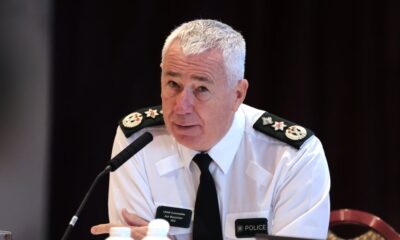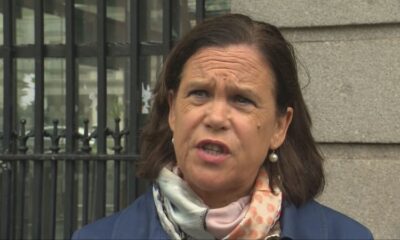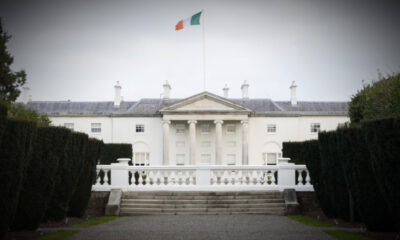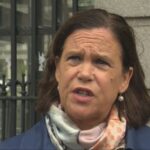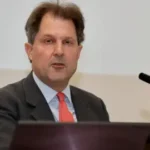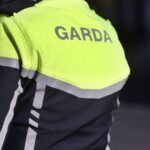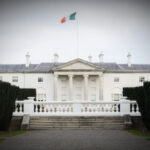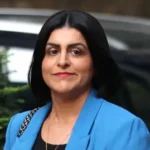Breaking News
Connolly presidency promises ‘compassionate diplomacy’
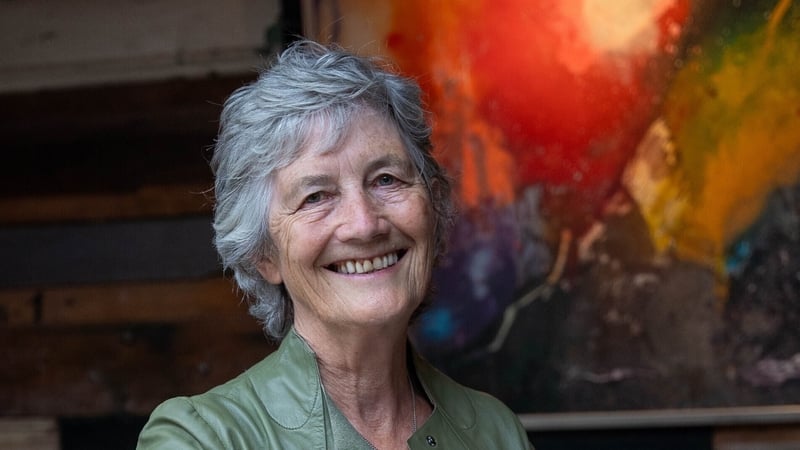
Read more on post.
Catherine Connolly is 68 years old, that is two years younger than Michael D Higgins when he first entered office, but 22 years older than Mary Robinson, Ireland’s youngest president, who was 46 when she became the first woman president of Ireland.
Ms Connolly is serving her third term as an Independent TD for Galway West, having first entered the Dáil in 2016.
She grew up in Shantalla, a suburb of Galway, as one of 14 children, her father was a carpenter and boat-builder, and she has been pictured alongside striking examples of his work in her constituency office.
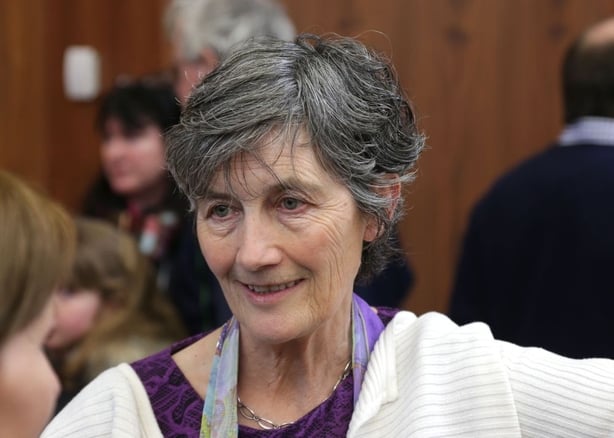
Ms Connolly has a master’s degree in clinical psychology from the University of Leeds in 1981, and in 1989, she earned a law degree from the University of Galway and became a barrister-at-law in 1991. She is married to Brian, and they have two adult sons.
Ms Connolly first entered local politics in 1999 as a Labour Party councillor in Galway city, becoming mayor of Galway five years later.
However, she left Labour in 2006 after it decided not to run a second candidate alongside Michael D Higgins for the Dáil elections the following year.
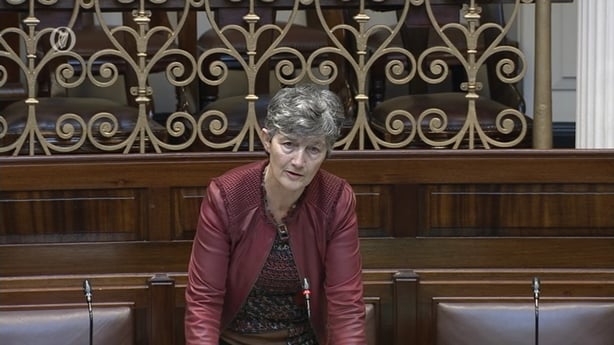
Ms Connolly unsuccessfully ran for election in 2007, polling just 2,000 votes, but she ran again in 2011, polling higher, but ultimately losing out to Fine Gael’s Sean Kyne by just 17 votes.
In 2016, Ms Connolly was elected as an Independent TD for Galway West for the first time, and went on to nominate Richard Boyd Barrett as taoiseach.
In her maiden Dáil speech, she criticised then-housing minister Alan Kelly’s record on homelessness.
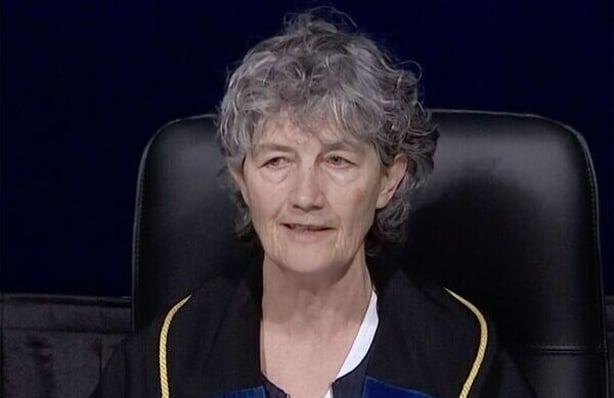
Ms Connolly sat on the Public Accounts Committee and was chair of the Committee on the Irish Language, the Gaeltacht and the Islands.
After her re-election in 2020, she went on to be elected as Leas Ceann Comhairle, the first woman to hold the position.
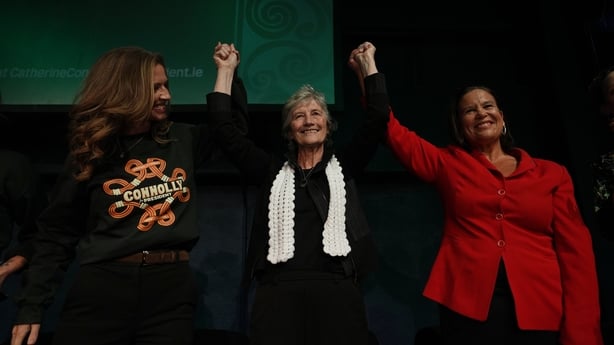
She has the backing of all of the left-leaning parties in the Oireachtas; the Social Democrats, Labour, People Before Profit-Solidarity, the Green Party and latterly, Sinn Féin.
There have been two issues that have dogged Ms Connolly’s campaign; a trip she took to Syria with then-TDs Clare Daly, Mick Wallace and Maureen O’Sullivan in 2018, and her nomination of former journalist Gemma O’Doherty for president in the same year.
She has been asked repeatedly about both, eventually telling RTÉ’s This Week that it was “certainly” a mistake to meet a supporter of former Syrian president Bashar al-Assad during the trip.
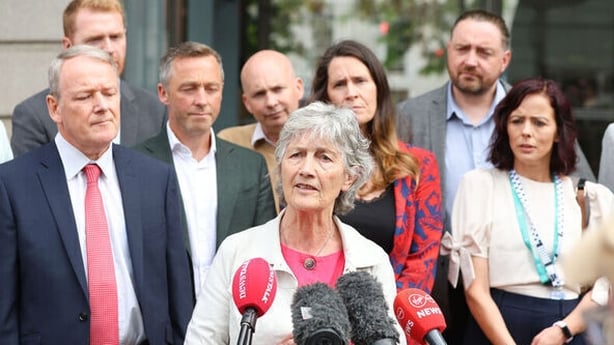
However, she defended the context of the trip, saying it was a fact-finding mission, and pointed to the fact that Micheál Martin had met with Assad.
Regarding her decision to nominate Ms O’Doherty for the presidency in 2018, she said: “When the presidential election comes up all TDs and senators are faced with the dilemma who to nominate.
“It’s not the same as supporting someone. I did not and do not support Gemma O’Doherty, but I made a decision to be one of many nominees to give her a chance to stand.”
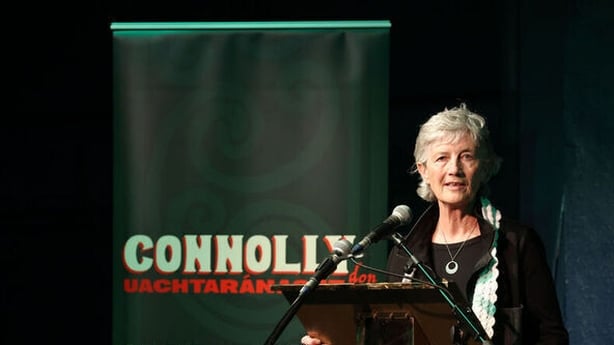
Ahead of the Family and Care referendums, Ms Connolly said she would support the Family referendum, but voted against the Care referendum, telling the Dáil that the proposed new article “with no enforceable rights”
She added: “It confines caring to within the family and it seeks to recognise the care that family members give to one another by reason of the bonds that exist between them. I cannot describe anything weaker or worse”.
One recurring theme in Ms Connolly’s political career has been her commitment to neutrality.
Last April, she joined members of People Before Profit and the Social Democrats under the umbrella of the Irish Neutrality League, calling for the preservation of the triple lock.
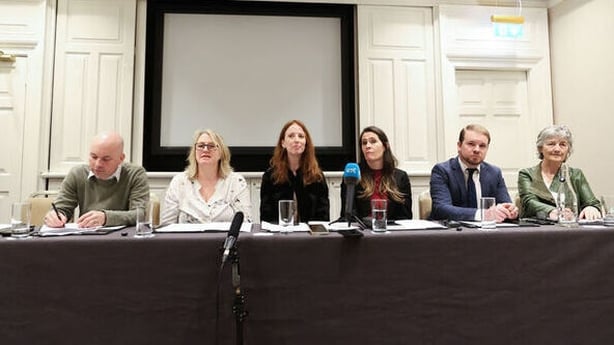
She said she was “sick, sore and tired” of the prevailing commentary that Ireland was freeloading on other EU member states when it came to defence.
She said: “I don’t look on the world through that lens. Yes, we have wars that shouldn’t be happening. We have had a tradition of neutrality, and there’s an onus on all of us, …to question, what is happening?
“How are we going this direction? How are we now getting ready in the Dáil to pass legislation that will get rid of the triple lock?
“The triple lock that’s been part of our policy of neutrality for a very long time?”
Read more: The challenge ahead for the inclusivity candidate
She has long been a staunch supporter of Palestine, and recently said she would visit Palestine as president, if elected.
“We are witnessing a genocide. I hoped I would never have to say such words in my lifetime. As president I would travel to Palestine to show my support and solidarity and that of the Irish people to the people of Palestine,” she said.
Listen back: Both Israel and Hamas committed war crimes – Catherine Connolly
We need your consent to load this rte-player contentWe use rte-player to manage extra content that can set cookies on your device and collect data about your activity. Please review their details and accept them to load the content.Manage Preferences
Speaking to the BBC, Ms Connolly criticised British Prime Minister Keir Starmer’s comment that Hamas should have no role in a future Palestinian state, saying the militant group is “part of the fabric of the Palestinian people”.
After the remarks drew criticism from some quarters, Ms Connolly moved to clarify the statement, telling RTÉ’s Morning Ireland: “[Hamas] were elected by the people the last time there was an election, overwhelming support for them back in 2006 or 2007. And they are part of the civil society of Palestine”.
She added: “What they did was absolutely unacceptable. Both sides have committed war crimes and hopefully both sides will be held to account.
“But history did not start on the 7 October and at some stage parties outside of Palestine and Israel must begin to look at what has led to this conflict and how it can be resolved and resolved it must.”
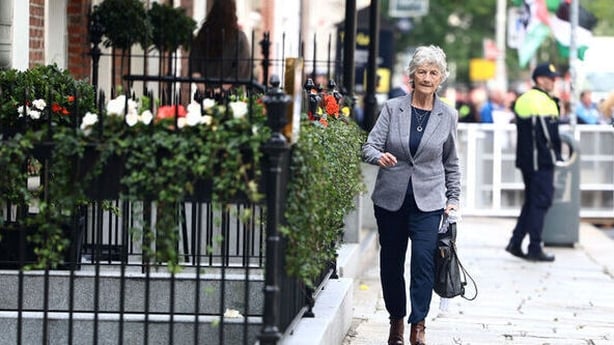
According to her campaign, Ms Connolly wants to be “a president for all the people, especially for those often excluded and silenced”.
“She wants to be a voice for equality and justice and for the defence of neutrality as an active, living tradition of peace-making, bridge-building, and compassionate diplomacy,” her campaign said.
Breaking News
McDonald ‘very concerned’ for those on Gaza aid flotilla
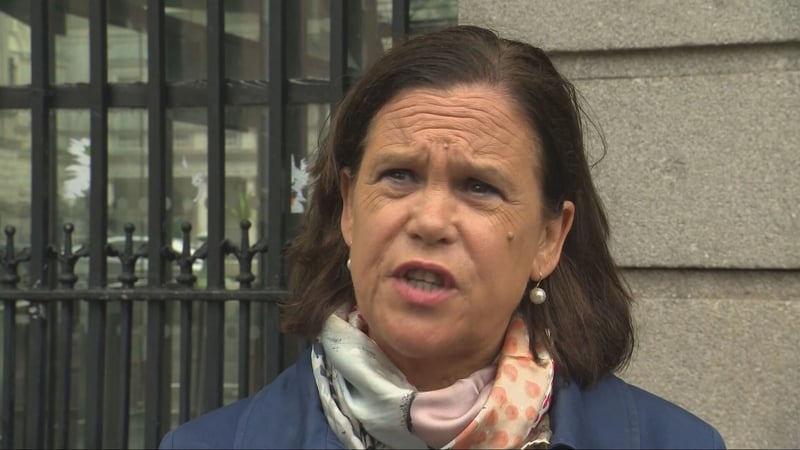
Read more on post.
Sinn Féin leader Mary Lou McDonald has said she is “very concerned” for the safety of those travelling on the Gaza-bound aid flotilla.
It comes as organisers of the flotilla as well as a number of Irish and international pro-Palestinian activists said they heard explosions and saw multiple drones target some of their boats.
Speaking to RTÉ News, Ms McDonald said: “There are more than 20 civilians, Irish citizens on the flotilla, including our colleague Chris Andrews.”
“There is no doubt that the Israeli targeting of the flotilla defies international law,” she said.
“They are acts of intimidation and menace.”
The Global Sumud Flotilla (GSF) departed Barcelona on 31 August, with the aim of breaking Israel’s blockade of Gaza. It currently numbers 51 vessels, most of which are off the Greek island of Crete.
It had already been targeted in two suspected drone attacks in Tunisia, where its boat had been anchored before resuming its voyage towards Gaza.
Ms McDonald added it is “absolutely essential that the Irish Government and others confront Netanyahu and confront Israel”.
“They believe they can act any way they wish because that has been allowed,” she said.
“The security of people on the flotilla needs to be guaranteed.”
She said she has been speaking to Senator Andrews and “his concern is for the wider safety of the flotilla and for people in Gaza who are suffering unspeakable horror”.
Speaking at a protest outside Leinster House, Ms McDonald said governments needs to show “the red card” to Israel. She said sanctions on the country are “needed now”.
“This has gone on too long,” said Ms McDonald.
“We face sure catastrophe and the extermination of the Palestinian people.”
Senator Andrews, who is on board the ship ‘The Sceptre’, said it was struck four times by drones.
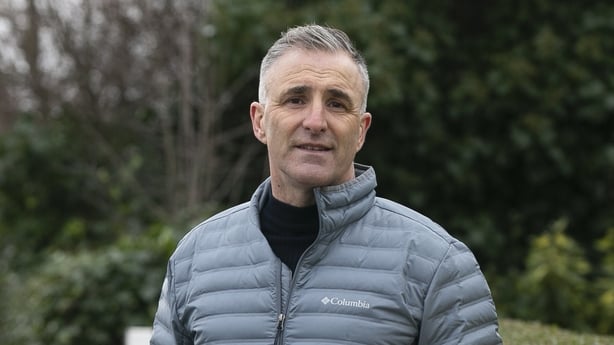
He said there were no injuries or serious damage inflicted, and that those on board remain undeterred.
Senator Andrews called for the Irish Government to “arrange for an observer vessel to accompany the flotilla to ensure that Israel does not violate the human rights of its participants”.
“This is the most serious assault by Israel on this flotilla since it first departed from Barcelona over three weeks ago.
Read more: Italy sends navy assistance after Gaza flotilla attack
“The Irish Government has a responsibility to protect its citizens on this flotilla, as well as to stand up for human rights and justice,” he said.
Senator Andrews said the Irish Government needs to “publicly challenge the dangerous and blatantly false attempts by Israel to misrepresent the purpose of this flotilla as anything other than non-violent and humanitarian in nature”.
“Ireland needs to stand up to these threats and say clearly to the world that Israel’s weapons of war will not deter humanity,” he said.
“I urge people at home to contact the Department of Foreign Affairs, the Taoiseach, the Tánaiste, and their local public representatives to call on them to intervene to protect this flotilla.”
Lynn Boylan to write to EU commission
Sinn Féin MEP Lynn Boylan said she will write to the EU commission to demand they call for safe passage of the flotilla.
“The EU must not stand idly by while innocent civilians are put in danger by doing what the EU hasn’t had the courage to do,” the Dublin MEP said.
“I would also urge everyone to contact the Department of Foreign Affairs and urge them to intervene to protect the many Irish citizens, as well as all other civilians travelling as part of this peaceful flotilla,” she added.
People Before Profit TD Paul Murphy wrote on X: “The #GlobalSumudFlotilla is under attack from Israel in international waters right now. Multiple boats reporting attacks by drones. Contact the government. Demand they send an observer to the flotilla.”
Israel, which blocked two previous attempts by activists to reach Gaza by sea in June and July, said Monday it would not allow the flotilla to reach the embattled Palestinian territory.
Israel has come under huge international pressure over its war in Gaza, which has sparked a dire humanitarian crisis in the Palestinian territory.
Last month, a body backed by the United Nations officially declared famine in part of Gaza.
While on 16 September, UN investigators accused Israel of committing “genocide” in the besieged territory, nearly two years after the war erupted following Hamas’s 7 October 2023, attack on Israel.
Breaking News
Tories request investigation into Starmer chief of staff
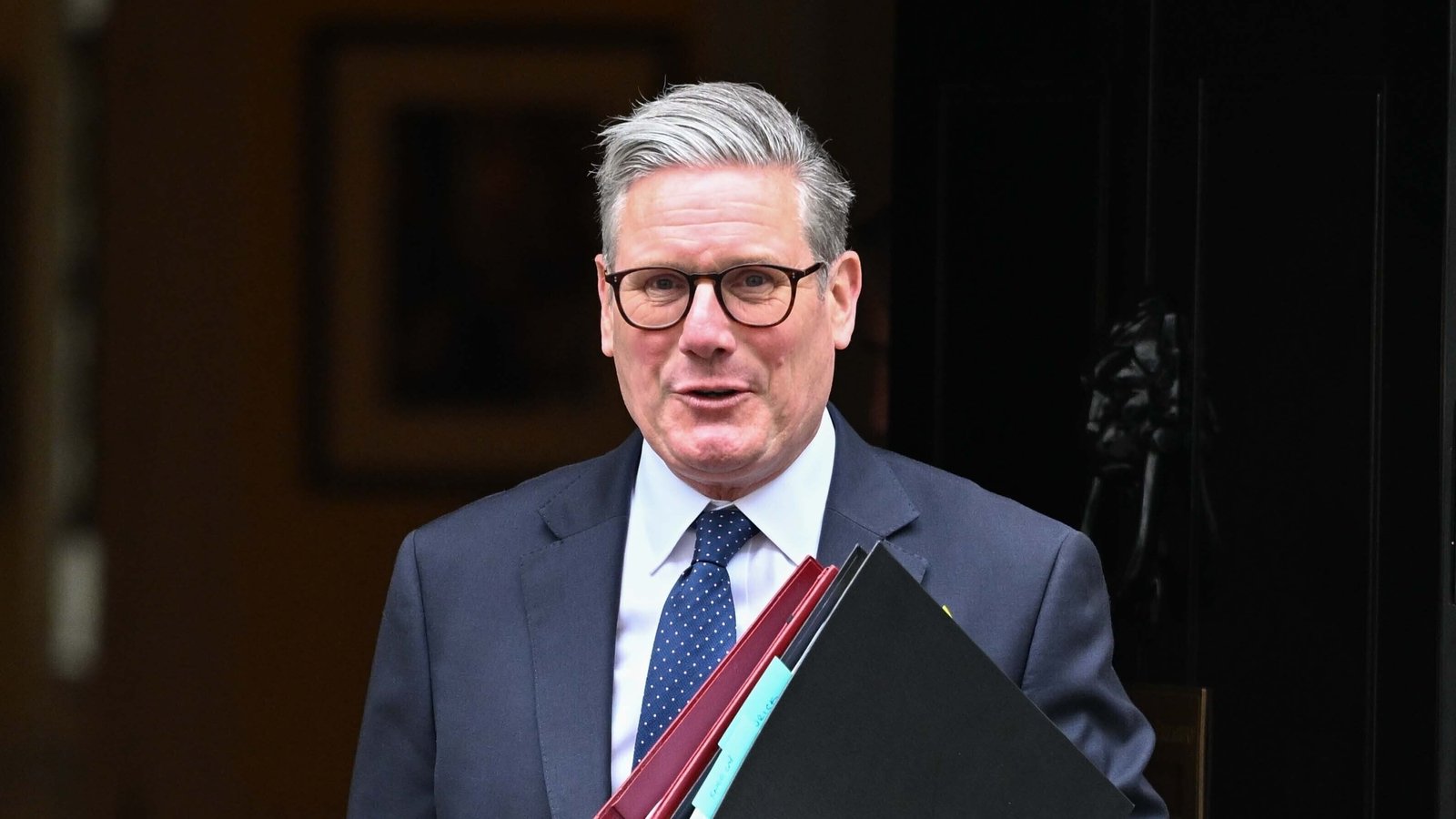
This post was originally published on this site.
The Conservative Party has called for an investigation into the Downing Street chief of staff, Morgan McSweeney, claiming he sought to mislead a UK election watchdog.
Mr McSweeney, a native of Macroom, Co Cork, has served in his current role since October last year.
While in opposition, he led a think-tank known as Labour Together, which is credited with helping the party prepare for its ultimate general election success in July 2024.
However, in 2021, it was fined £14,250 (€16,323) by the UK’s Electoral Commission over its handling of almost £740,000 in donations.
The Conservative Party has published correspondence which suggests that Mr McSweeney was advised to describe the failure to declare the donations as an “admin error”.
It has been met with criticism by many senior Labour figures, with the Deputy Prime Minister David Lammy describing the controversy as “muck-racking”.
Labour Together has also insisted that the issue has been dealt with.
“The Electoral Commission’s investigation, with which Labour Together fully co-operated, was completed in 2021. The outcome was made public and widely covered by the media at the time”, it said in a statement.
Pat McFadden, the Secretary of State for Work and Pensions, told BBC Radio this morning that the Conservative Party was trying to “attack somebody who is very effective”.
He described Mr McSweeney as an “integral part of Labour’s general election campaign”.
The Conservative Party is also calling for an investigation into Prime Minister Keir Starmer, claiming he failed to declare support from the think-tank Labour Together.
Downing Street has insisted that everything was properly declared.
Conservative Party chair Kevin Hollinrake claimed that Mr Starmer received help from Labour Together, which included “secret polling to help writing his speeches and behind the scenes campaigning”.
The party has written to the Parliamentary Standards Commissioner.
Breaking News
Police used journalists’ phone data to detect leaks by staff, report says
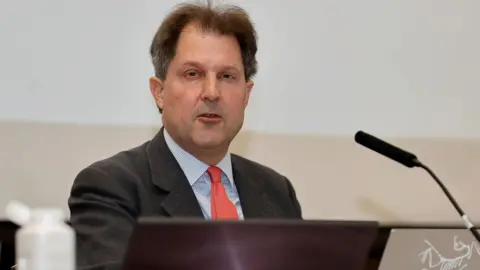
Read more on post.
Julian O’NeillBBC News NI crime and justice correspondent
Concerns have been raised over how the Police Service of Northern Ireland (PSNI) used journalists’ phone numbers to check for any leaks of information by its officers or staff.
A 200-page report also revealed there were 21 unlawful uses of covert powers to attempt to uncover reporters’ sources – double the figure previously disclosed.
Its author, lawyer Angus McCullough KC, said he found that the PSNI’s surveillance of journalists and lawyers is not “widespread or systemic”.
PSNI Chief Constable Jon Boutcher said the report “rightfully highlights that we have to improve our processes, and we will”.
Mr Boutcher added that he was “pleased” that the review did not identify systemic surveillance, but did find “individual authorisations where we as a police service could have done better”.
In the report, Mr McCullough was critical of “particular instances” and “some areas of practice”.
The report covered PSNI surveillance practices between 2011 and 2024.
Last year, Mr McCullough was asked to carry out an independent review by Mr Boutcher.
It followed legal action by journalists Barry McCaffrey and Trevor Birney and allegations that other journalists, and lawyers, might have had their phones monitored.
The PSNI previously admitted 10 attempts to use the communications data of journalists to try to identify their sources.
But the report found 21 instances, all pre-2015, which are “considered unlawful” and which relate to eight journalists, including Mr McCaffrey.
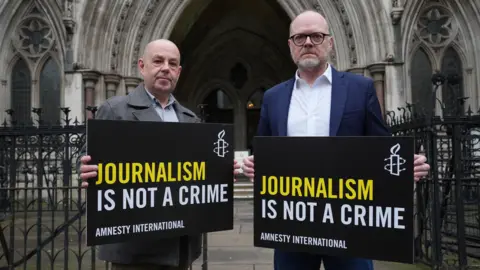 PA Media
PA MediaIn 2017, Mr Birney and Mr McCaffrey produced a documentary about the loyalist murders of six Catholic men as they watched a football match in a pub in Loughinisland in County Down in 1994.
No Stone Unturned was made by Belfast-based production company, Fine Point Films and directed by Oscar winner, Alex Gibney.
It examined how the Royal Ulster Constabulary (RUC) handled the case and made use of confidential documents from the Police Ombudsman for Northern Ireland (PONI) – a watchdog which investigates police conduct.
The PSNI treated the leak of PONI documents as theft.
A year later the two journalists were arrested.
They said their arrests were “an attack on the press” and challenged the way they were treated in court, winning substantial damages amounting to £875,000.
However, through legal disclosure material surfaced which revealed details of surveillance against them and other journalists.
Speaking on BBC Radio Ulster’s Talkback programme, Mr McCaffrey called for a public inquiry.
He said this would allow Northern Ireland Secretary Hilary Benn to “put the public confidence back in policing”.
Mr Birney welcomed the report but said his and Mr McCaffrey’s lawyers had not had a chance to “cross-examine the PSNI” and “review those documents… and test them against the law”.
Freedom of expression
Speaking at the report’s launch, Mr McCullough said there had been concerns of the effect the arrests could have on investigative journalism in Northern Ireland.
“Two journalists who had been investigating mass murder and allegations of state collusion had been arrested and subject to covert measures and surveillance of a suspected source”, the barrister said.
“The right of freedom of expression – including the freedom for journalists and civil society to examine the actions of the state – is fundamental to democracy.”
‘Lack of awareness’
The report also raised issues around the use of journalists’ phone numbers, which had been provided to the PSNI’s press office.
Between 2011 and 2023, the numbers were “washed through” police systems to detect any unauthorised contact between PSNI officers or staff and journalists.
This was referred to as pro-active “defensive operations” against leaks.
At one point, in 2011, it involved checking 65,000 calls against 383 journalists’ numbers.
The report states: “No legal advice appears to have been sought in relation to the legality or propriety of the practice.
“There seems to have been a lack of awareness until very recently that it might give rise to issues in relation to data protection and the rights of those whose data was being used unknowingly.
“This practice does not appear to have been necessary or proportionate.
“The scale and duration of defensive operations is a significant concern.”
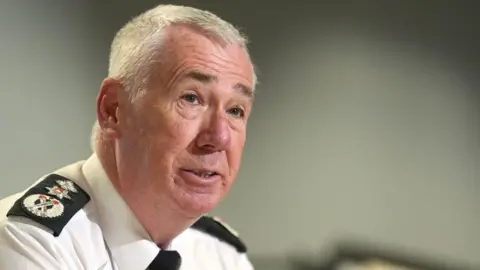 PA Media
PA MediaMr McCullough said the PSNI should consider self-reporting the matter to the UK’s data protection watchdog, the information commissioner.
He noted the practice was only formally discontinued in May of last year.
Investigative journalist Donal MacIntyre is named in the report as having been the subject of directed surveillance following posts he made on social media.
He is working on a documentary about the disappearance and death of schoolboy Noah Donohoe.
There was an unease that the X posts “created a serious risk of prejudice” to upcoming inquest proceedings.
Mr McCullough said he is concerned about the process that led to the surveillance being authorised, but added he found “no indication” that Mr MacIntyre’s private communications with Noah’s mother had been accessed.
Mr McIntyre said he was “shocked at the lackadaisical and lamentable processes that led the PSNI to authorise covert surveillance of [his] social media accounts”.
He said he was “relieved” that the review found his communications with Noah’s mother were not accessed.
However, he added that the findings exposed “profound institutional failings in the PSNI’s approach to covert surveillance” and raised “grave concerns” about the intrusion into his work and “the wider and potentially unchecked use of these powers in Northern Ireland”.
The report also found two instances of directed surveillance against an unnamed lawyer, including in a court building, without proper authorisation.
Mr McCullough did not examine any cases currently at the Investigatory Powers Tribunal, including MI5-conducted phone surveillance of journalist Vincent Kearney while he worked at the BBC.
‘Appropriate use of powers’
Mr Boutcher said that “properly exercised covert powers” had “an important role to play” in detecting, investigating, prosecuting and preventing crime.
“Mr McCullough makes reference to being struck by the utility of these powers in keeping the public better protected from a range of threats including organised crime, terrorism, paedophile rings and large scale drug supply,” he said.
Mr Boutcher said that “appropriate, lawful and proportionate use of these powers” keeps people safe and “builds confidence in policing”.
-
Breaking News1 day ago
Barack Obama to be conferred with freedom of Dublin at ceremony on Thursday
-
Breaking News1 day ago
Opinion: To be or not to be? Why it is time to drop Shakespeare’s compulsory status in Leaving Cert
-
Culture1 day ago
Taylor Swift’s new cinema outing generates more than €12million in just 24 hours
-
Breaking News1 day ago
Minister rejects proposal to make Shakespeare optional in Leaving Cert English
-
Breaking News1 day ago
Families at risk of homelessness may have another chance to avail of tenant-in-situ scheme
-
Travel & Lifestyle2 days ago
The Best Way to See Rome? On a Running Tour at Sunrise
-
Business21 hours ago
JLR shutdown extended again as ministers meet suppliers
-
Politics1 day ago
European Parliament snubs Orbán with vote to shield Italian MEP from Hungarian arrest


